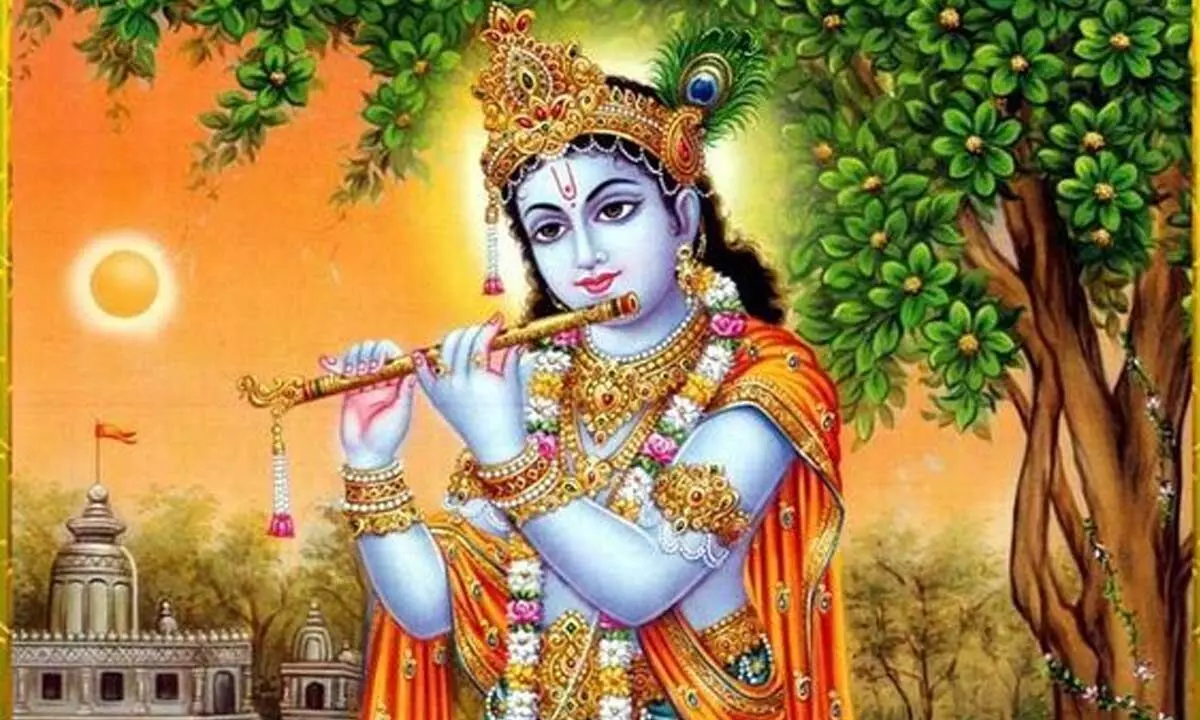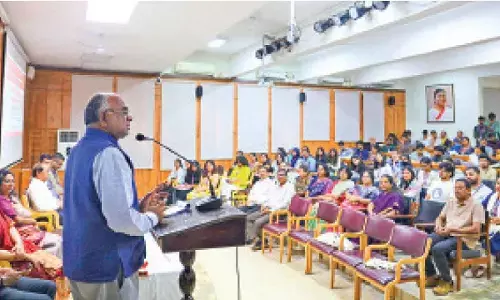Do We Have Freedom of Action?

Are humans bound by destiny to do things in a predetermined way or do they have the free will to shape themselves as they wish? This has been a constant question in philosophy.
Are humans bound by destiny to do things in a predetermined way or do they have the free will to shape themselves as they wish? This has been a constant question in philosophy. The Greeks thought that destiny was supreme. Many others followed it. ‘Oh Thou! Who man of baser earth didst make/ And even with Paradise devise the snake’, says Omar Khayyam in his Rubaiyat, addressing God. ‘You have to forgive and seek forgiveness of man’, he demands.
The two words, determinism and free will are not specifically used in Vedanta but the entire process of bondage and liberation describe the free will of human beings to come out of the clutches of nature. The Gita (18-61) says that God dwells in the hearts of all beings and whirls them as if they were instruments mounted on a machine. At first look it appears that God controls all our actions. But in a later verse (18-63) Krishna says, ‘What all has to be told has been told. You reflect on it and do as you like’. This line gives freedom of choice. If all human actions are totally controlled by God, you cannot blame man. God has to take the fruit of good and bad deeds (punyam and papam) of man. This is a preposterous situation.
Hence, the texts analyze that the real influence on human action is man’s own innate nature, svabhava, which is a collection of predispositions, as a result of all his karma in innumerable previous lives. This svabhava manifests as a mix of the three gunas which are the constituents in nature. It manifests as a set of predispositions or tendencies, such as calmness, contentment, aggressiveness, virtuous or vicious conduct and so on. These predispositions make a man’s personality. This personality can be compared to a gadget with unique design for a unique work. The role of God is to enable it to function.
The role of God is compared with the sunlight falling equally on all people on earth. In the sunlight people may do several actions, but the sunlight is not affected by the results of their actions. Modern teachers give the example of electricity present in different gadgets which may perform a variety of actions because of their different constitution but electricity itself is unconcerned with them. It helps the instruments to do their designed work. The Gayatri mantra says that what we call God is the presence of consciousness in all beings, enabling their activities according to their constitution.
There is a great corpus of philosophical insights of our sages in the form of Upanishads. These tell us as to what a seeker has to do. All these would be purposeless if everything were to be predetermined. The influence of past karma is only to the extent of causing a particular birth, and the influence of svabhava is to predispose a person to have a personality type. But the human being, reacting to his social environment, has the free will to change his svabhava and advance to a higher level or fall to lower levels. We have thus a combination of free will and determinism admitted in Vedanta.
God can play an additional role too, if only we seek Him. The texts say that devotion to God is a quick and effective way to get over our negative dispositions and acquire positive tendencies which purify the mind. Devotion to God is the easy way to modify such samskaras and get rid of roadblocks.
Vedanta says that working under the influence of svabhava is not freedom. It is because one is bound by it, as Krishna says. Coming out of the bondage of svabhava and understanding the cosmic scheme of things is real freedom of action. Real freedom is in aligning human action with God’s scheme of things, and that is what is karma yoga. Krishna also shows how real freedom is to go beyond the influence of the three gunas. It is a hard path, but it is real enlightenment.
(The writer is a former
DGP, Andhra Pradesh)

















